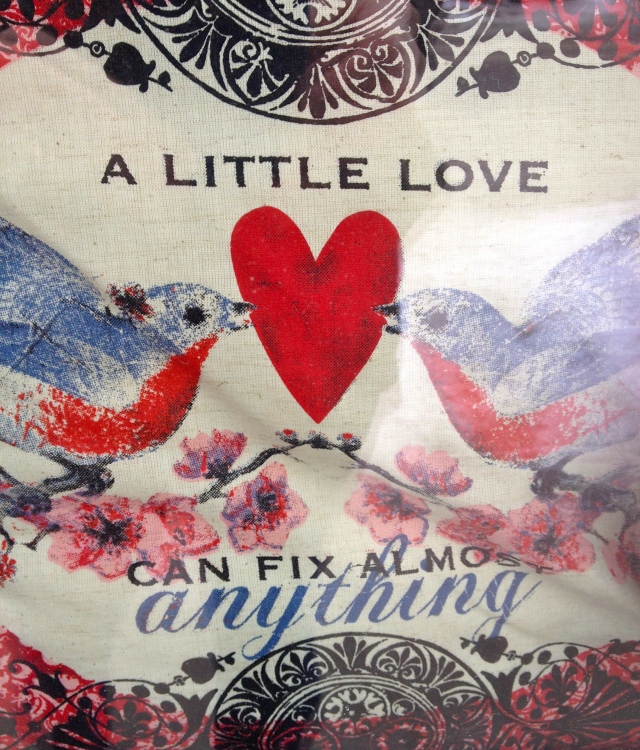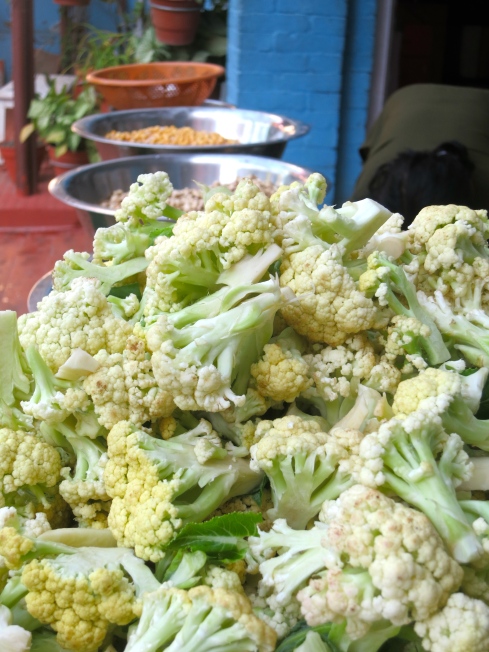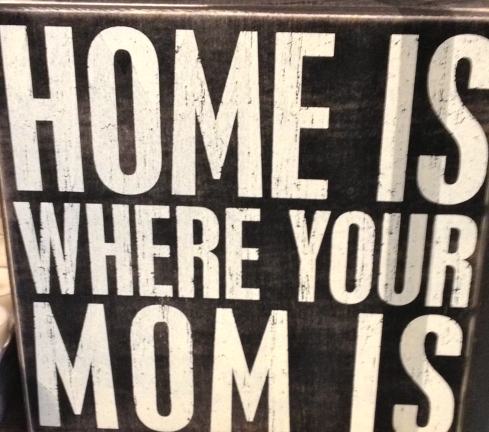
As I write this, there are seven teens asleep in my basement. My son and his friends came back from their high school dance in high spirits last night. Laughing and joking loudly, they boisterously descended on my kitchen, devouring everything within reach (even some chips that I thought I had hidden pretty well). These guys were the human equivalent of an invading colony of army ants, foraging insatiably through my refrigerator.
Now these boy-men are dead to the world, asleep in a puppy pile on my basement floor. And I have to be honest – I am loving every single thing about these teens. In fifteen plus years of parenthood, I have grown accustomed to – perhaps, in some ways, inured to – the many and diverse aspects of wonder in babies and children. But I find myself surprised and overjoyed at the sheer beauty of teenagers today.
My friend Doug describes my feelings perfectly:
I continue to be dumbfounded, flummoxed, and gobsmacked by my kids, in all sorts of great ways.
The conventional wisdom is that teens are “challenging”. And, no question about it, there are challenging aspects of parenting teens. But I think teens get a bit of a bad rap in our society. I know I’ve had many people say to me over the years, as I struggled with sleep deprivation, no “me” time, etc. etc.:
“Just WAIT until you have teens!”
But now I am starting to wonder. I wonder if it could be possible that I was misinterpreting these statements for all these years? Instead of a dire warning of impending misery (based perhaps on my then-existent sleep deprived misery coupled with a tired, old societal cliche), is it possible that what they actually were trying to say to me was:
“Hang in there, it WILL get better! Teenagers are the BEST!
Because now that my oldest son is 15 and a freshman in high school, I am finding that this stage of parenting is a comparative cakewalk. Here are a few reasons why:
Teens have the capacity for So! Much! Joy! The photo above, which my son took of his high school sailing teammates at practice last fall, illustrates what I mean. Teens can make anything fun. Sure, there are pretty major hormonal changes and brain development going on that help explain this facet of teen behavior. But I also think that teens are just not afraid to show it when they are having fun. Somewhere along the way, most adults seem to lose the capacity for emotion that they had as teens. We keep it in, stuff it down, don’t laugh out loud. Living with a teenager is a good reminder that sometimes you just need to turn up the music and dance around wildly.
You can reason with them. This will come as a pleasant surprise to parents who have spent more than a decade living with toddlers and young children. And I say this as a mother who freely admits to having resorted to Tootsie Pop bribery – believe me, one day your child will in fact become a rationale human being. Stuck in a situation that he would (no doubt) have preferred NOT to be in recently, my teen son summed it up like this:
“I understand what you are saying. I understand why I should do this. I’m just frustrated, that’s all.”
Then he sucked it up and did what he had to do for his family.
The social relationships of today’s teen reflects a lot more equality. My son is friends with both girls and boys. Heterosexual, homosexual, bisexual. I don’t know about transgender yet but I have no doubt that he wouldn’t give a rip. My teen and those he hangs out with just don’t seem to care that much. This is a huge step forward from when I was a teen myself. Sure, there is still plenty of drama. But things seem to be, somehow, just a little bit less – fraught. And so much more accepting. I would be lying if I didn’t tell you that I think that is totally great.
Teens can contribute. Carrying in groceries, washing dishes, shoveling snow – it struck me recently that my teen son is doing a lot to help keep the wheels of of our unwieldy family of of five moving forward. This is huge! A total sea change from the days of constant care and feeding of babies and small children when the parents are always, always DOING for the kids. Sure, you often have to remind a teen to do a chore. But if you give them the challenge of responsibility, by and large, they will accept it.
They expose you to new – and sometimes wonderful – things. My son introduced me to Avicii way before his music made it to the mainstream; that was just the beginning of the new music he has exposed me to. The other day, I was doing laundry and I heard him in his room playing his guitar and singing “The Man Who Can’t Be Moved”. I had never heard of The Script or this song before. But before suddenly, I was loading the dryer with tears in my eyes.
But it’s not just music. My teen curates movie and program selections us (his lame parents) based on our tastes. His recent recommendation of It’s Always Sunny in Philadelphia to his dad was spot on. I’m sure I would never have even heard about the growing popularity of eSports if not for the influence of my teen, who competes for his high school Starleague team. I’ve also learned several iPhone tricks that I would never have figured out on my own. And, by the way, my in-house teen tech support can’t be beat!
Teens are more connected to the global community. My son, who plays eSports, routinely chats online with teens in other countries. Thanks to his fantasy geopolitics team, he knows much more about what is going on in Iran and Ukraine than I do. Part of this is without question due to changes in global society and technology that have made our world smaller and more interconnected for all of us. But I think this increased connection across borders can only be good for the future of our planet, particularly when it comes to solving big problems (like, say, human rights abuses.) I am hopeful that this is the generation that begins to truly live out Rev. Dr. Martin Luther King, Jr.’s words: “Injustice anywhere is a threat to justice everywhere. We are caught in an inescapable network of mutuality, tied in a single garment of destiny. Whatever affects one directly, affects all indirectly.”
Teens know how to find the information they need. Today’s teens came of age in the era of Google – they know how to use a search engine. But I am referring to more than just their search skills. What I mean is that this is a generation that has a unique attitude towards information as being infinitely accessible and independently attainable. Information is easily and immediately obtained, disputes are easily settled. Pearl Harbor happened on Dec. 7, 1940 or 41? (1941) Pizza dough is two weeks old and slightly gray? (edible) Who wrote the Art of War? (Sun Tze) What are the requirements for an out-of-state resident to get a driver’s license in New Hampshire? (this one for my nephew Eli, another great teen.) In a sense, this attitude makes them a generation of empowered autodidacts.
Teenagers are downright hilarious. My son, his friends, and the other teens in my life crack me up. They make me laugh all the time. They have mastered puns; they have evolved into excellent purveyors of sarcasm. They get (and make) jokes that reference popular culture – even when the popular culture being referenced occurred well before they were born. (For example, they totally got it when I described them during their kitchen rampage as “Gremlins who had been doused in water and fed after midnight”.)
And they can be so very creative in their humor! For their vocabulary homework for Spanish class, my son and his friends made this video. The assignment was not to make a video; the assignment was to come up with a dialogue that involved specific Spanish vocabulary. But remember my point about how teens can make anything fun?
Teens give you the gift of revisiting things that you’ve done before – but with a new perspective. Here’s just one example: If I didn’t live with a teen, I may never have gone back and re-read books that I read in high school. Classics – books like The Giver, Of Mice and Men, and To Kill A Mockingbird – where I fully recall the plot and the major characters but not the details. The author’s tone, poignant quotes, turns of phrase that knock your socks off. All the things that really make these books classics? These I had forgotten. I was surprised to discover how much my perspective has changed on some of these books, my opinions shifting and resettling after years of life experience. I empathize with some characters that I used to have nothing but disdain for; I’ve lost patience with others that I used to love. When my son gets a new reading assignment, I now see it as an opportunity. I started re-reading Romeo & Juliet because my son, describing the priceless hilarity of his teacher reading 500-year-old bawdy humor out loud to the class, reminded me that “Shakespeare was a BOSS!”
Although not yet fully formed, you can see in a teen glimmers of the person that he or she will become. Teens today have opinions and they speak up for themselves. (My son has even shared his opinion on this blog before.) They are not afraid to like something just because the LIKE it, even it it is not the current thing. I was surprised that one of the first songs my son taught himself on guitar was Semisonic’s Closing Time – from 1998, the year before he was born.
Perhaps because they are more open and expressive than previous generations have been, you can catch glimpses of today’s teens’ developing inner selves. Between this and his external behavior, I feel like I can truly see the proto-adult that is growing in my adolescent son – and I really, REALLY like him. The guy who stays cool in a pinch. The guy who doesn’t hold a grudge. The guy who can be counted on to be there for his friends. The guy who always walks the girl home at night (for safety reasons). I look forward to watching him grow into the wonderful adult that I can now say that I feel sure he will become.
My middle son turns 13 in two weeks.
With him, I’m looking forward to discovering the beauty of teens all over again.
Closing time
Open all the doors and let you out into the worldClosing time
Every new beginning comes from some other beginning’s end
Yeah.














You must be logged in to post a comment.